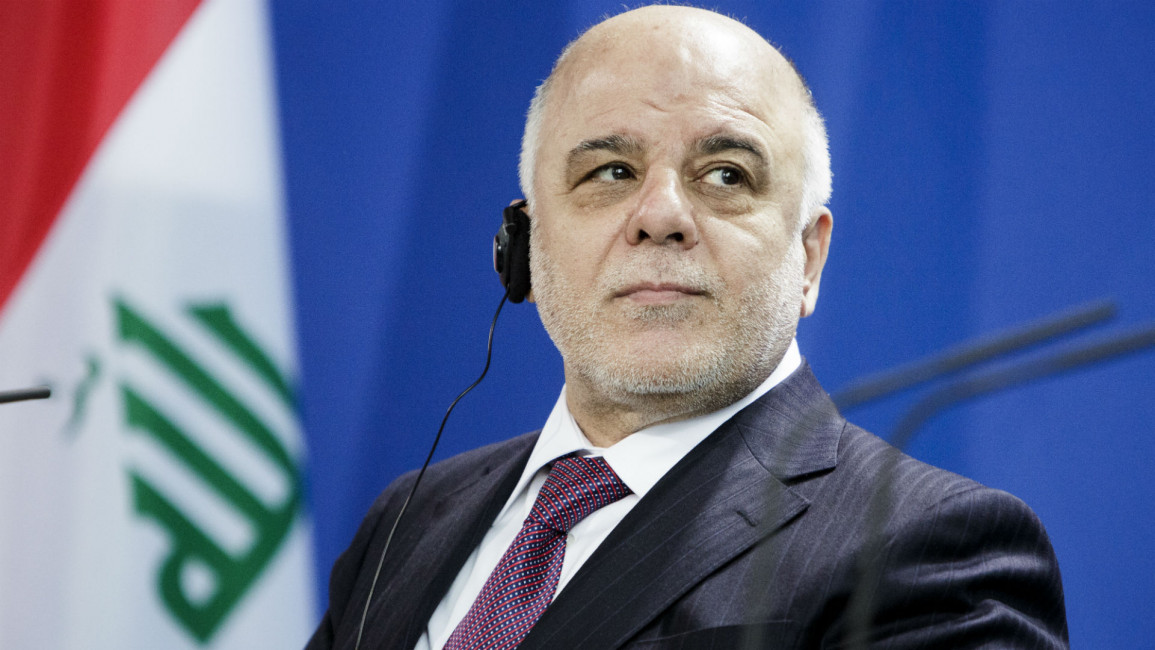Iraq's Abadi accuses opponents of spreading 'fake bombing news'
Iraqi Prime Minister Haider al-Abadi has accused his opponents of disseminating "fake reports" about bomb blasts in Baghdad to undermine him.
The leader has faced relentless challenges from within his own bloc and across the political spectrum since taking the helm in 2014, on Tuesday said media outlets had been fed reports of bombings that never happened
"There are parties exaggerating the situation... I always say that one fallen martyr is one too many, but spreading fear among the people, that's called a fifth column," he told reporters.
On Monday, multiple security and hospital sources said a suicide car bomb attack claimed by the Islamic State group killed at least 35 people in north-eastern Baghdad.
However, a number of other smaller bombings were reported by local news outlets and on social media subsequently across Baghdad, and Abadi claimed these reports were fabricated.
"Look at the series of bombings announced in Baghdad on Monday," he told reporters at a press conference after his weekly cabinet meeting.
"You are journalists - go to the alleged spots in Baghdad. Were there victims there, were there really bombs there, were there any martyrs?" he asked.
Although the official fell short of identifying anyone, Abadi accused some of his political opponents of deliberately trying to paint the security situation as worse than it already is.
"Those groups work among us, some of them have a problem with the prime minister. Let them sort it out with the prime minister but not this way, by scaring the people," he said.
"They claim that they back the security forces on the front lines and then they stab them in the back," Abadi said.
"Using innocent blood for the sake of a political feud is not right."
Criminal activity has spiked across Baghdad in recent weeks, Abadi said, stressing that IS militants were not the only ones with an interest in stretching Iraq's security forces.
Tens of thousands of Iraqi fighters - including from the federal police - are currently deployed in the north to take part in operation to retake second city Mosul from IS.
"Why is there an increase in organised crime at this time? Who wants to muddy the situation, who wants to keep our security forces busy with kidnappings? That causes a shortage in security personnel," he said.
"Among the criminal gangs, there are no differences. Some come up with arguments suggesting there is a difference between Sunnis and Shias... but criminals have no sect. Their interest is just the money - they don't respect religion or doctrine," Abadi added.
Last week, a female journalist was abducted from her home after publishing an article criticising Shia militia groups but was released on Tuesday.
Abadi said information from early in the investigation suggested the kidnapping of Afrah Shawqi was both politically and criminally motivated, and added that the security forces were actively following several leads to secure the release of the 43-year-old.



